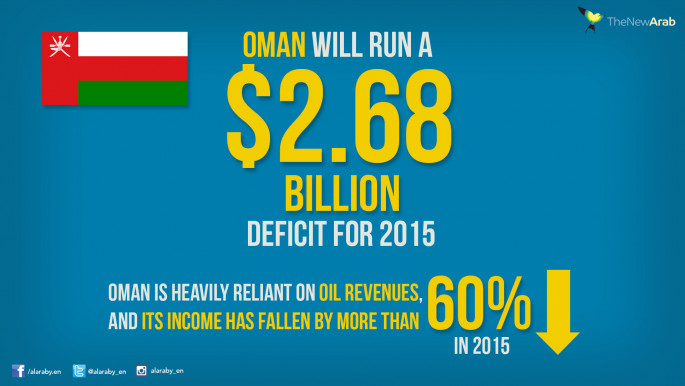
Oman to target expatriates' visa fees to cut deficit
Oman is looking at ways to provide jobs for the sultanate's growing young population but this is no easy task in the era of cheap oil.
Like other countries in the Gulf, expatriates have dominated the private sector while Omanis have tended to work in different branches of the government - from civil service to the army.
While low oil prices continue to hammer at Muscat's revenues, the government is looking at ways to cut the apron strings and encourage more Omanis to take jobs in the private sector.
Huge development projects - such as the port of Duqm - and a plethora of new hotels are opening up the country to tourism and outside investors, and should go some way to create the new jobs needed.
However, Oman needs to find around 50,000 jobs annually just to keep pace with population growth.
One simple answer has been to cut its foreign work force - which reached two million this week - and give these jobs to Omanis.
Muscat's latest attempt is to make it more expensive for businesses to hire foreigners, thus creating an incentive to dip into Oman's local human resources.
Visa fees could be hiked from 200 rials [$520] to 300 rials [$780] for lower-income expatriate workers following a proposal by a member of Oman's shura council.
 |
For those earning over 300 rials, workers or their employers will have to hand over three percent of their salaries over the past two years to renew their visas.
This is no trifling amount for companies or workers as they cope with low oil prices.
Taqfiq al-Lawati, who submitted the proposal in Oman's lower house, said that it would bring in urgently needed revenues for the government and cut the country's foreign work force.
 |
"At present, the government collects 250 rials million [$650 million] in visa renewal fees. Now, even by increasing the minimum from 200 to 300 rials it will bring in 125 million rials [$324 million]. And by calculating 3 percent for those who earn more, it will bring in extra money," he told The Times of Oman.
Many expatriates see the proposed visa hike as an unjust tax, and fear they may have to foot the bill.
They particularly resent the fact that the revenues generated at their expense will be used to subsidise the country's generous welfare state which they have no access too.
Leaders in the private sector have also warned that such "anti-business practices" could have a detrimental impact on efforts to diversify the economy away from oil.
Continuing to target expatriates with such laws might also tarnish the sultanate's image as a welcoming and tolerant country, as it tries to attract more foreign investment and tourists.
However, with a massive $8.6 billion deficit for 2016 - according to this year's projected budget and spending plans - Muscat will have to find the rials from somewhere, and work to prevent rising unemployment and potential unrest.





 Follow the Middle East's top stories in English at The New Arab on Google News
Follow the Middle East's top stories in English at The New Arab on Google News


